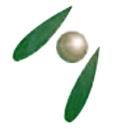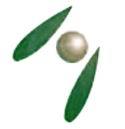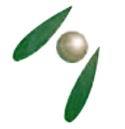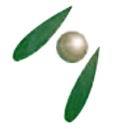natural vitamin E
About natural vitamin E
There is no denying that vitamin E is extraordinarily beneficial for your body in many different ways. Researchers discovered Vitamin E about eighty years ago, but only in the past few years have we started to appreciate its power as an antioxidant.
Research studies have shown that Vitamin E fights oxygen free radicals, and helps stave off diseases and enhance our overall health. Yet most of us do not get even the recommended daily allowance of 30 International Units. Unless you want to drink two quarts of corn oil and eat a pound of sunflower seeds everyday, the only way to increase your Vitamin E intake is with supplements, preferably in liquid form due to better absorption than pill form. Vitamin E deactivates potentially damaging oxygen free radicals, and prevents heart diseases and other related complications. People with exiting heart disease who take Vitamin E have a 77% lower risk of subsequent (non-fatal) heart attack that those who do not.
Vitamin E protects against prostate cancer. One recent finish study reported a reduced incidence of prostate cancer in male smokers who took 50 IU Vitamin E daily for five to eight years.
Vitamin E prevents or delays cataracts and macular degeneration. Liquid vitamin E supplementation cuts the incidence of cataracts in half. The risk of late stage macular degeneration, the leading cause of blindness in the elderly, is significantly lower in older adults who take high levels of Vitamin E.
Vitamin E helps prevent Alzheimer disease, particularly if combined with vitamin C, both taken in high doses (greater than 400 IUs a day for Vitamin E). Vitamin E boosts immune function. Some studies have shown improved immune responses in older people who take liquid vitamin E supplements.
You probably know there are different forms of vitamin E. You might even know what these different forms are and how they are different. But have you ever wondered what form of vitamin E is the best? Some say that natural vitamin E is better than synthetic. Is this true? What makes the best form the best?
If you are asking these questions, you will find the answers here. True, Vitamin E is available in many different forms. In its natural form, vitamin E is designated d-, as in-d-alpha-tocopherol, while its synthetic forms are dl-, as in dl-alpha-tocopherol. The letters d and l reflect mirror images of the vitamin E molecule.
Our body only recognizes the d form. Although the l form has antioxidant activity, it may actually inhibit the d-form from entering cell membranes. Therefore, natural vitamin E (the d form) has greater benefit than the synthetic (dl). You should, therefore, take the natural (d-) form of vitamin E and avoid the synthetic.
Whether or not the vitamin E is natural, there are several natural tocopherols and related compounds known as tocotrienols that also have health benefits. For example, while the vitamin E activity of alpha-tocotrienol is rated at 30% compared to alpha-tocopherol's 100%, alpha-tocotrienol actually showed greater anti-tumor activity.
In a study of men with coronary artery disease, it was d-gamma-tocopherol that was low, not d-alpha-tocopherol suggesting that d-gamma- may be more important than d-alpha-tocopherol in preventing heart disease.


Price:
- 50
- 100
- 200
- 250
- 500
- 1000+
More Products in Sports / Ergogenic Supplements Category
66-84-2 D-Glucosamine hydrochloride
Packaging Size : 25 kg
Shelf Life : 2 Years
Strength : 98% Min
Best Before : 24 months from date of manufacture
Efficacy : Other, Used as a dietary supplement to support joint health and treat osteoarthritis
Packaging Type : Drum
Dicreatine Citrate
Packaging Size : 100g, 500g, 1kg
Shelf Life : 24 Months
Strength : High potency
Best Before : 24 Months from Manufacturing Date
Efficacy : Other, Promotes muscle strength and enhances performance
Packaging Type : HDPE Jar / Pouch
Potassium Beta-hydroxy-beta-methylbutyrate
Packaging Size : 1 kg, 5 kg, or customized pack
Shelf Life : 24 months from date of manufacture
Strength : Available in high purity form
Best Before : 24 months from manufacture
Efficacy : Other, Supports muscle recovery and growth, enhances exercise performance
Packaging Type : HDPE drum, fiber drum, or customized
Sodium pyruvate
Packaging Size : 100 g, 500 g, 1 kg
Shelf Life : 36 months
Strength : High purity, molecular biology grade
Best Before : 36 months from date of manufacture
Efficacy : Other, Nutrient supplement, enhances cell viability in cultures
Packaging Type : HDPE bottle, Aluminum foil pack

 Send Inquiry
Send Inquiry






 Send Inquiry
Send Inquiry English
English Spanish
Spanish French
French German
German Italian
Italian Chinese (Simplified)
Chinese (Simplified) Japanese
Japanese Korean
Korean Arabic
Arabic Portuguese
Portuguese